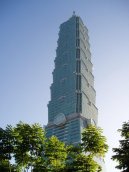Taiwan
Taiwan: Travel tips, articles, photos, gallery, cities database, population, pics, flags, statistics, free maps online
Back to Countries, Click to read the whole article: Taiwan
| Introduction - Taiwan: | | Location - Taiwan: | | People - Taiwan: | | Government - Taiwan: | Country name | conventional long form: none
conventional short form: Taiwan
local long form: none
local short form: Tai-wan
former: Formosa | | Government type | multiparty democracy | | Capital | name: Taipei
geographic coordinates: 25 03 N, 121 30 E
time difference: UTC+8 (13 hours ahead of Washington, DC during Standard Time) | | Administrative divisions | includes main island of Taiwan plus smaller islands nearby and off coast of Chinas Fujian Province; Taiwan is divided into 18 counties (hsien, singular and plural), 5 municipalities (shih, singular and plural), and 2 special municipalities (chuan-shih, singular and plural)
note: Taiwan uses a variety of romanization systems; while the Wade-Giles system still dominates, city of Taipei has adopted standard Pinyin romanization for street and place names within its boundaries; other local authorities use different romanization systems; names for administrative divisions that follow are in Wade-Giles system with Pinyin equivalents in parentheses
counties: Chang-hua (Changhua), Chia-i (Chiayi) [county], Hsin-chu (Hsinchu), Hua-lien (Hualien), I-lan (Yilan), Kao-hsiung (Kaohsiung) [county], Kin-men (Kinmen), Lien-chiang (Lienchiang, also Matsu), Miao-li (Miaoli), Nan-tou (Nantou), Peng-hu (Penghu), Ping-tung (Pingtung), Tai-chung (Taichung), Tai-nan (Tainan), Tai-pei (Taipei) [county], Tai-tung (Taitung), Tao-yuan (Taoyuan), and Yun-lin (Yunlin)
municipalities: Chia-i (Chiayi) [city], Chi-lung (Keelung), Hsin-chu (Hsinchu), Tai-chung (Taichung), Tai-nan (Tainan)
special municipalities: Kao-hsiung (Kaohsiung) [city], Tai-pei (Taipei) [city] | | National holiday | Republic Day (Anniversary of the Chinese Revolution), 10 October (1911) | | Constitution | 25 December 1947; amended in 1992, 1994, 1997, 1999, 2000, 2005
note: constitution adopted on 25 December 1946; went into effect on 25 December 1947 | | Legal system | based on civil law system; has not accepted compulsory ICJ jurisdiction | | Suffrage | 20 years of age; universal | | Executive branch | chief of state: President CHEN Shui-bian (since 20 May 2000); Vice President Annette LU (LU Hsiu-lien) (since 20 May 2000)
head of government: Premier (President of the Executive Yuan) CHANG Chun-hsiung (since 21 May 2007); Vice Premier (Vice President of the Executive Yuan) CHIOU I-jen (since 21 May 2007)
cabinet: Executive Yuan - (ministers appointed by president on recommendation of premier)
elections: president and vice president elected on the same ticket by popular vote for four-year terms (eligible for a second term); election last held 20 March 2004 (next to be held in March 2008); premier appointed by the president; vice premiers appointed by the president on the recommendation of the premier
election results: CHEN Shui-bian re-elected president; percent of vote - CHEN Shui-bian 50.1%, LIEN Chan 49.9% | | Legislative branch | unicameral Legislative Yuan (225 seats; 168 members elected by popular vote, 41 elected on basis of proportion of islandwide votes received by participating political parties, 8 elected from overseas Chinese constituencies on basis of proportion of islandwide votes received by participating political parties, 8 elected by popular vote among aboriginal populations; to serve three-year terms)
note: as a result of constitutional amendments approved by the now defunct National Assembly in June 2005, number of seats in legislature will be reduced from 225 to 113 beginning with election in 2007; amendments also eliminated National Assembly thus giving Taiwan a unicameral legislature
elections: Legislative Yuan - last held 11 December 2004 (next to be held in December 2007)
election results: Legislative Yuan - percent of vote by party - DPP 38%, KMT 35%, PFP 15%, TSU 8%, other parties and independents 4%; seats by party - DPP 89, KMT 79, PFP 34, TSU 12, other parties 7, independents 4 | | Judicial branch | Judicial Yuan (justices appointed by the president with consent of the Legislative Yuan) | | Political parties and leaders | Democratic Progressive Party or DPP [YU Shyi-kun]; Kuomintang or KMT (Nationalist Party) [WU Po-hsiung]; People First Party or PFP [James SOONG]; Taiwan Solidarity Union or TSU [HUANG Kun-hui]; other minor parties including the Chinese New Party or NP | | Political pressure groups and leaders | Taiwan independence movement, various business and environmental groups
note: debate on Taiwan independence has become acceptable within the mainstream of domestic politics on Taiwan; political liberalization and the increased representation of opposition parties in Taiwans legislature have opened public debate on the islands national identity; a broad popular consensus has developed that the island currently enjoys sovereign independence and - whatever the ultimate outcome regarding reunification or independence - that Taiwans people must have the deciding voice; public opinion polls consistently show a substantial majority of Taiwan people supports maintaining Taiwans status quo for the foreseeable future; advocates of Taiwan independence oppose the stand that the island will eventually unify with mainland China; goals of the Taiwan independence movement include establishing a sovereign nation on Taiwan and entering the UN; other organizations supporting Taiwan independence include the World United Formosans for Independence and the Organization for Taiwan Nation Building | | International organization participation | APEC, AsDB, ICC, ICRM, IFRCS, IOC, ITUC, WCL, WHO (observer), WTO | | Diplomatic representation in the us | none; unofficial commercial and cultural relations with the people of the US are maintained through an unofficial instrumentality, the Taipei Economic and Cultural Representative Office (TECRO), which has its headquarters in Taipei and in the US in Washington, DC; there are also branch offices called Taipei Economic and Cultural Office (TECO) in 12 other US cities | | Diplomatic representation from the us | none; unofficial commercial and cultural relations with the people on Taiwan are maintained through an unofficial instrumentality - the American Institute in Taiwan (AIT) - which has offices in the US and Taiwan; US office at 1700 N. Moore St., Suite 1700, Arlington, VA 22209-1996, telephone: [1] (703) 525-8474, FAX: [1] (703) 841-1385); Taiwan offices at #7 Lane 134, Hsin Yi Road, Section 3, Taipei, Taiwan, telephone: [886] (2) 2162-2000, FAX: [886] (2) 2162-2251; #2 Chung Cheng 3rd Road, 5th Floor, Kaohsiung, Taiwan, telephone: [886] (7) 238-7744, FAX: [886] (7) 238-5237; and the American Trade Center, Room 3208 International Trade Building, Taipei World Trade Center, 333 Keelung Road Section 1, Taipei, Taiwan 10548, telephone: [886] (2) 2720-1550, FAX: [886] (2) 2757-7162 | | Flag description | red with a dark blue rectangle in the upper hoist-side corner bearing a white sun with 12 triangular rays | |
| Economy - Taiwan: | | Communications - Taiwan: | | Transportation - Taiwan: | | Military - Taiwan: |
This page was last updated on 16 September, 2007
Source: CIA >>> |




